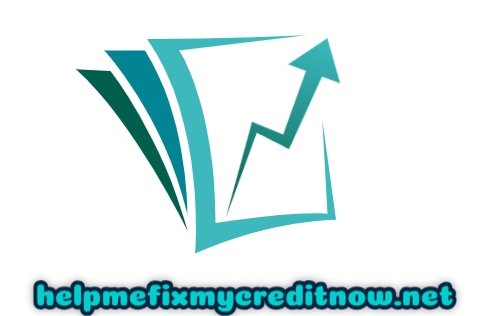
When debt feels like it’s closing in, debt settlement can seem like a lifesaver. It promises relief—cutting down what you owe and offering a way to regain control. But as with most financial shortcuts, there’s a cost that goes beyond dollars and cents. One of the biggest trade-offs? Your credit score.
Before you make a decision that could shape your financial future for years, it’s crucial to understand exactly how debt settlement affects your credit—and what you can do about it.
What Is Debt Settlement, Really?
Debt settlement is essentially a negotiation. You or a debt settlement company approach your creditors with a deal: instead of paying the full amount you owe, you offer a lump-sum payment that’s less—sometimes significantly less. If the creditor agrees, your remaining balance is forgiven.
Sounds like a win, right? It can be. But this shortcut comes at a price—particularly to your credit report.
The Immediate Damage: What Happens to Your Credit Score
To make a debt settlement work, most people must stop making payments while they save up for that lump sum. This deliberate non-payment triggers a chain reaction in your credit report:
- Missed Payments: As soon as your payments are 30 days late, your credit score starts dropping. Every additional month of non-payment adds another red mark.
- Settlement Status: Once a debt is settled, it’s marked on your credit history—not as “paid in full,” but as “settled for less than the full amount.” This tells future lenders that you didn’t repay what you originally owed, which can be a serious red flag.
- Lowered Credit Utilization: If settlement closes credit lines or eliminates part of your credit access, your credit utilization ratio (how much credit you’re using compared to what you have) may spike—another blow to your score.
- Damaged Credit Mix: Settling debts might reduce the variety of credit types on your report. While this factor carries less weight, it can still contribute to a lower score.
Tax Surprises: What You Don’t Pay May Still Cost You
Here’s a kicker many overlook: the portion of debt that’s forgiven might be considered taxable income. If you settle a $10,000 debt for $4,000, the IRS could count that $6,000 difference as income—and you’ll owe taxes on it. While this doesn’t hurt your credit score directly, it can definitely strain your wallet and delay financial recovery.
Long-Term Effects: How Your Credit Score Can Recover
The good news? Time can heal financial wounds—if you help the process.
Think of your credit score like a house after a storm. It might look rough at first, but with effort and consistency, it can be rebuilt.
Here’s how to start:
1. Start Paying On Time, Every Time
Late payments are credit score poison. Even after debt settlement, staying current on all remaining and future bills will slowly help restore your score.
2. Keep Credit Usage Low
Use less than 30% of your available credit. If you have a credit card with a $1,000 limit, try not to carry more than $300 in balance. This shows lenders you’re managing credit responsibly.
3. Don’t Go on a Credit Application Spree
Opening too many new accounts in a short period sends the wrong signal. Be strategic—apply only for what you need and can manage.
4. Monitor Your Credit Report
Check your credit reports regularly to make sure the settlement was accurately reported and there are no errors dragging your score down. You’re entitled to one free report each year from each of the three major credit bureaus—use them.
How Long Until You See Improvement?
Just like healing a broken bone, recovery time varies. If you follow strong financial habits, you may start to see positive changes within six months. But rebuilding to a truly healthy score—especially if your credit took a serious hit—can take two to four years or longer.
The pace depends on multiple factors: your overall credit history, whether you’ve had bankruptcies or defaults, and how disciplined you are with money management now.
Other Paths to Consider: Debt Relief Alternatives
Before jumping into debt settlement, consider these alternatives. They may offer a less damaging route out of debt:
Debt Consolidation Loans
This strategy involves taking out a single loan to pay off multiple smaller debts. It simplifies your payments and may reduce your overall interest rate. While applying might cause a temporary dip in your score, on-time payments can improve it over time.
Credit Counseling and Debt Management Plans
Nonprofit credit counseling agencies can help you develop a structured debt management plan. These plans often lower your interest rates and consolidate your payments—without the major hit to your credit score that comes with settlement or bankruptcy.
Bankruptcy
Though often seen as a last resort, bankruptcy can offer a clean slate. While it severely impacts your credit at first, it also ends the cycle of missed payments and collections. In some cases, credit recovery after bankruptcy may be faster than after prolonged delinquency through debt settlement.
Smart Steps Toward a Brighter Financial Future
Debt settlement isn’t a magic fix—but it can be the right move in some situations. The key is to approach it with clear eyes and a long-term plan.
Here are some final best practices:
- Work with Reputable Companies: Not all debt settlement firms are created equal. Look for transparency, strong reviews, and accreditation from organizations like the Better Business Bureau.
- Create a Budget: Debt settlement is only one piece of the puzzle. Real change comes from better money habits. Track your income, cut unnecessary spending, and build savings.
- Use Trusted Financial Resources: Stick to advice from reputable sources. Government agencies like the Consumer Financial Protection Bureau and financial education sites can provide valuable, up-to-date information.
The Bottom Line
Debt settlement can provide relief, but it leaves a mark. Your credit score will feel the impact—but it’s not the end of the road. With smart financial choices and consistent effort, you can rebuild, recover, and regain control of your financial life.
Choosing how to deal with debt is a deeply personal decision. Whether you settle, consolidate, file bankruptcy, or seek counseling, know this: financial freedom is possible. It just takes the right knowledge, a clear plan, and a commitment to better habits.
4o



